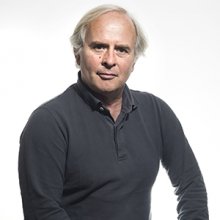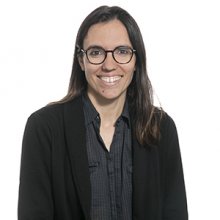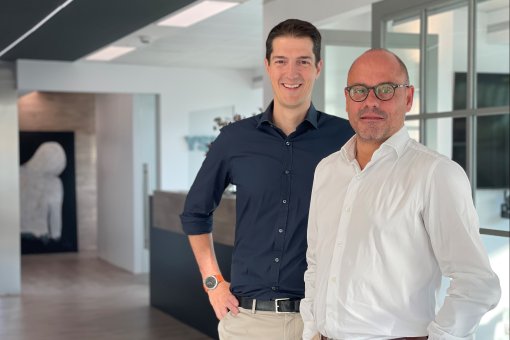Images
Participants



Contact

It seems the amino acid transporter SLC7A8/SLC3A2 plays an important role in this disease.
The study was coordinated by Manuel Palacín from IRB Barcelona and Virginia Nunes from IDIBELL.
Age-related hearing loss is a multifactor-origin disease which affects almost one out of three people aged between 65 and 74. It seems the amino acid transporter SLC7A8/SLC3A2 plays an important role in this disease, according to the study coordinated by the researchers Manuel Palacin, UB Professor from the Institute for Research on Biomedicine (IRB Barcelona) and Virginia Nunes, the UB Professor from Bellvitge Biomedical Research Institute (IDIBELL).
The study, published in the journal eLife, described a new research situation which could link amino acid transporters to an important percentage of genetic hearing loss, which have not been explained so far. The following experts also take part in the study: Isabel Varela Nieto (CSIC/UAM), Mara Dierssen (CRG-CIBERER), Meritxell Espino (Sidra Medical and Research Center, Qatar) and Paolo Gasparini (University of Trieste, Italy), among others.
Age-related hearing loss involves several environmental factors and genes. This disease is clinically shown as a bilateral sensory and progressive defect, which affect high frequency sounds and causes a loss of hair cells in the Corti organ, as well as atrophy of the stria vascularis and neurodegeneration in the spiral ganglion and the central auditory system.
The experimental protocol of the new study followed a certain itinerary: from detecting a specific hearing loss phenotype in a laboratory animal model to the analysis of patients and the following sequencing of the similar gene (orthologs) in humans. The new study covers the analysis of the phenotyped –i.e. the molecular, morphological and functional characterization- of the transgenic mouse model (which does not express the Slc7a8 gene), created by the teams led by Virginia Nunes and Manuel Palacín.
The collaboration of the groups led by Isabel Valera Nieto and Mara Dierssen confirmed that the Slc7a8 gene –which codes one of the suib-units of the LAT2 amino acid transporter- is expressed in the internal hearing of the mouse, so this lack causes age-related hearing loss due the effects in the cochlear structures (Corti organ, spiral ganglion, stria vascularis, etc.).
The study, carried out with samples from humans, clinical studies and research of mutations, were conducted by the groups led by Paolo Gasparini and Meritxell Espino, essential to identify several mutations in the SLC7A8 gene in a group of patients from two isolated towns in Italy that displayed age-related hearing loss. Then, these mutations were checked functionally by the group led by Manuel Palacín, head of the Amino Acid Transporters and Disease Lab at IRB Barcelona.
The article published in the journal eLife will enable researchers identify individuals who are prone to develop age-related hearing loss due mutations in the SLC7A8 gene. In the future, the genetic screening of this gene in other affected people to identify the prevalence of these mutations in a wider population, experts say.
Reference article:
Espino Gaurch, M.; Font-Llitjós, M.; Murillo-Cuesta, S.; Errasti-Murugarren, E.; Celaya, A. M.; Girotto, G.; Vuckovic, D.; Mezzavilla, M.; Vilches, C.; Bodoy, S.; Sahún, I.; González, L.; Prat, E.; Zorzano, A.; Dierssen, M.; Varela-Nieto, I.; Gasparini, P.; Palacín, M.; Nunes, V. «Mutations in L-type amino acid transporter-2 support SLC7A8 as a novel gene involved in age-related hearing loss». eLife, January 2018. DOI: 10.7554/eLife.31511.001
Source of information: University of Barcelona
About IRB Barcelona
The Institute for Research in Biomedicine (IRB Barcelona) pursues a society free of disease. To this end, it conducts multidisciplinary research of excellence to cure cancer and other diseases linked to ageing. It establishes technology transfer agreements with the pharmaceutical industry and major hospitals to bring research results closer to society, and organises a range of science outreach activities to engage the public in an open dialogue. IRB Barcelona is an international centre that hosts 400 researchers and more than 30 nationalities. Recognised as a Severo Ochoa Centre of Excellence since 2011, IRB Barcelona is a CERCA centre and member of the Barcelona Institute of Science and Technology (BIST).




